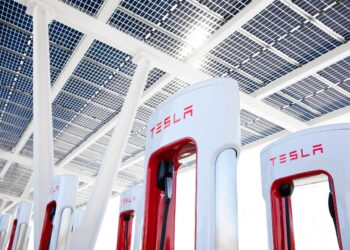
Toyota sent a document to its dealers in the United States explaining why the Japanese brand is going with a multi-pronged approach regarding powertrains and not fully embracing EVs.
The paper listed three main barriers to mass EV adoption in the US: a shortage of critical minerals needed to make high-voltage batteries is looming, the charging infrastructure is still lackluster, and the high prices of new all-electric cars.
Now however, Tesla’s Head of Investor Relations, Martin Viecha, attempts to prove that Toyota’s statements can be challenged. In a Twitter reply to the document sent to dealers, Viecha argues that in a renewable economy, less mining and extraction of materials is needed because fuel extraction will no longer be necessary.
Regarding the charging network, Tesla’s Head of IR says that EVs can be fully charged at home every night, so fast charging needs are limited, but are widely available nevertheless.
Cost-wise, Viecha says that a Tesla Model 3 starts at around $37,500 after the tax credit is applied, which is lower than the average price of a new car or truck in the US.
This isn’t the first time a rival brand has criticized Toyota’s feet-dragging approach to EVs. At the beginning of the year, Fredricka Klaren, an executive responsible for sustainability at Polestar, said that Toyota’s hybrids aren’t enough to reduce global warming:
“To me, you’re still putting gasoline in the car, so don’t focus on that technology at all. If you keep focussing [and] having that in your business plan, you’re not going to level up in the way you need to do in terms of this new technology.”
The Japanese automaker currently has just one Toyota-branded EV on the US market – the bZ4X crossover. In the past, the company has argued that it’s better for the environment to equip more cars with smaller batteries (hybrids or plug-in hybrids) than fewer cars with bigger batteries (EVs).
With this being said, Toyota is planning to launch 10 new battery-electric vehicles by 2026, but it will also continue to develop ICE- and Hydrogen-powered vehicles for the foreseeable future.
As always, we’d like to know what you think about this, so head over to the comments section below to give us your thoughts.







